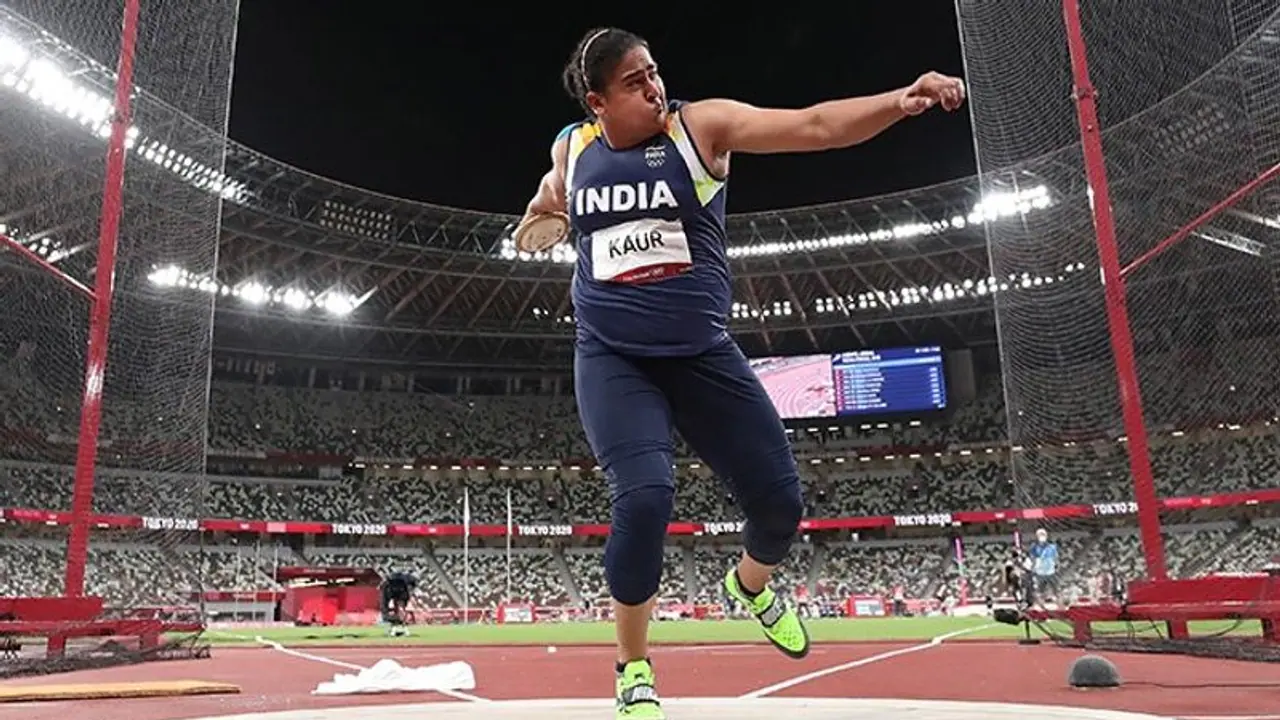Top Indian discus thrower Kamalpreet Kaur, who achieved stardom for her exploits at the Tokyo Games, was on Wednesday banned for three year for using prohibited substance Stanozolol.
The Athletics Integrity Unit (AIU) has announced that top Indian discus thrower Kamalpreet Kaur, who rose to fame for her performances in the Tokyo Olympics, has been suspended for three years for using the illegal chemical Stanozolol.

Her suspension will start on March 29, 2022. Kamalpreet received a temporary suspension in May 2022 after testing positive for the steroid in a sample taken from her by the AIU on March 7 in Patiala.
"The AIU has banned Kamalpreet Kaur of India for 3 years for the Presence/Use of a Prohibited Substance (Stanozolol), starting from March 29 2022. DQ results from March 7 2022," the AIU said in a statement.
In a spectacular performance, Kamalpreet placed sixth at the Tokyo Games. When Kaur achieved a national record of 65.06m in the run-up to the Olympics in Tokyo last year, her career took off quickly. She qualified for the final in Tokyo by placing second, and with the best throw of 63.70 metres, she came in sixth place. It was the third-best performance by an Indian in a field event at the Games.
Meanwhile, alarmed by the rise of doping cases in India, National Anti-Doping Agency (NADA) will now join hands with National Forensic Sciences University and the Food Safety Standards Authority of India to "protect" the country's athletes, Union Sports minister Anurag Thakur said in New Delhi on Wednesday.
"To ensure that our athletes are protected from inadvertent doping due to consumption of nutritional supplements with prohibited substances, NADA is collaborating with NFSU and FSSAI," Thakur said.
The main objective of the third edition of the symposium is to strengthen anti-doping measures in the country, which was ranked third behind Russia and Italy in terms of doping violations reported by WADA in 2019.
The National Dope Testing Laboratory is in the process of setting up an Athlete Biological Passport Unit in India and Thakur said it would be a very important scientific tool in anti-doping and the related research not only detect but deter doping in sports.
Also read: John Campbell becomes second Windies cricketer to be banned for doping; who is the first?
"The Symposium will turn out to be a big milestone in our collective fight against doping and also strengthen the anti-doping programme in India," Thakur said.
"The recently enacted National Anti Doping Act 2022 is a manifestation of India's strong resolve for clean sport at all levels in the country," he added.
(With inputs from PTI)
